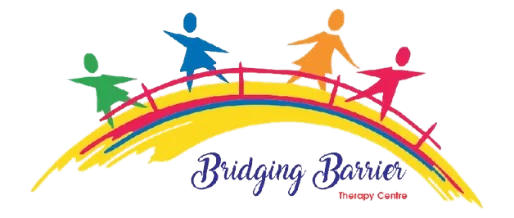Occupational
Therapy
At Bridging Barrier Child Development Centre, we understand the importance of occupational therapy in nurturing and supporting children’s growth and development. Occupational therapy (OT) is a crucial component of our comprehensive approach to enhancing children’s abilities and overall well-being.

How Occupational Therapy Works
Occupational therapy focuses on enabling children to participate in everyday activities to the best of their abilities. Our skilled occupational therapists assess each child’s strength ,limitations to get the baseline and then develop personalized intervention plans. Through a combination of therapeutic activities, exercises, and techniques, occupational therapy aims to enhance skills related to fine motor coordination, sensory processing, visual perception, Self-care, and Functional Independence.
How Occupational Therapy Helps
Occupational therapy can make a profound difference in children’s lives by:
1. Improving Motor Skills: Enhancing Gross and fine motor skills for tasks like Posture, balance, Self-care activities and mobility.
2. Enhancing Sensory Processing: Helping children better process and respond to sensory information.
3.Promoting Independence: Teaching essential life skills for greater independence in daily activities.
4. Supporting Emotional Regulation: Assisting children in managing emotions and behaviors.
1. Improving Motor Skills: Enhancing Gross and fine motor skills for tasks like Posture, balance, Self-care activities and mobility.
2. Enhancing Sensory Processing: Helping children better process and respond to sensory information.
3.Promoting Independence: Teaching essential life skills for greater independence in daily activities.
4. Supporting Emotional Regulation: Assisting children in managing emotions and behaviors.
Who Can Benefit from Occupational Therapy
Occupational therapy can benefit children facing various challenges, including but not limited to:
1.Developmental Delays
2.Sensory Processing Disorders
3.Autism Spectrum Disorder
4.Attention Deficit Hyperactivity Disorder (ADHD)
5.Learning Disabilities
6. Cerebral Palsy & Down Syndrome
7. Neurological disabilities
Useful Links
Get In Touch
- Bridging Barrier, K.B PLAZA, B BLOCK,SECTOR 2 , GREATER NOIDA WEST
- +91 9810623607, 9910083607
- monatia.dubey246@gmail.com
2024© Bridging Barrier. All Rights Reserved.
